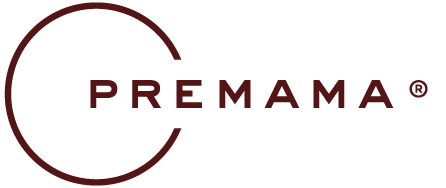As your body prepares for the arrival of your baby, it will undergo a wide range of changes. Many of these changes will affect your appetite and eating habits. Not to worry, though—this is completely normal. In fact, research shows that up to 90 percent of expecting mothers in the US experience pregnancy cravings. Not only are food cravings much more common than you think, but they're also your body's way of communicating its needs to you.
To ensure that you provide your body with the nourishment it desperately needs, it's important to understand why pregnancy cravings happen. This will help you better manage your symptoms over the course of your pregnancy. Here is everything you need to know about food cravings when pregnant and what you can do to address them.
Table of Contents:
- Understanding Pregnancy Cravings
- Factors that Influence Pregnancy Cravings
- Most Common Types of Pregnancy Cravings
- Consequences of Ignoring Pregnancy Cravings
Understanding Pregnancy Cravings
What are pregnancy cravings? Pregnancy cravings refer to a sudden urge to eat a specific type of food during pregnancy. Unlike regular food preferences, pregnancy cravings are often specific to the nutrients your body is missing. When you're expecting, your body requires certain nutrients to properly nourish your developing baby. As a result, you may find yourself craving foods that are rich in certain ingredients, such as sodium and iron.
When Do Pregnancy Cravings Start?
Many expecting mothers wonder, "When do cravings start in pregnancy?" Generally speaking, pregnancy cravings are most likely to occur during the first trimester. However, some women have reported experiencing these cravings as early as five weeks into their pregnancy. You can expect your cravings to peak in the second trimester before eventually receding at the start of the third trimester.
Progesterone plays a key role in the timing of pregnancy cravings. This hormone often causes women to lose more sodium through their urine, particularly during the first trimester. As a result, it becomes your body's priority to replenish its sodium levels and retain fluids more effectively. This is why many expecting mothers tend to crave salty foods during the first and second trimesters.
Factors That Influence Pregnancy Cravings
There are three main factors that play a role in pregnancy cravings:
- Hormonal changes
- Nutritional needs
- Food aversion
Hormonal Changes
Some studies suggest that pregnancy hormones may heighten your sense of taste and smell. These sharpened senses can cause you to develop specific cravings or aversions. Other research indicates that the hormones associated with pregnancy may alter the receptors on your tongue, giving you a strong preference for certain foods while causing you to avoid others.
Nutritional Needs
Some pregnancy cravings may be related to specific nutritional deficiencies. For example, if your body isn't taking in enough protein or iron, you may crave foods that are rich in these nutrients. It's crucial to maintain a balanced diet to ensure that you're receiving the proper fuel to support your growing baby.
Food Aversion
In addition to craving specific foods, you might develop an aversion to certain foods or smells. Food aversions are closely linked to a hormone known as human gonadotropin (hCG). hCG is produced during pregnancy and can lead to symptoms such as nausea and changes in appetite. Food aversions often co-occur with cravings during pregnancy.
Most Common Types of Pregnancy Cravings
- Salt
- Sweets
- Weird pregnancy cravings
Craving Salt During Pregnancy
Salt cravings are one of the most common cravings that pregnant women experience. One possible explanation for this is that your body relies on sodium to maintain a healthy balance of fluids and electrolytes. Pregnancy can alter the balance of these fluids, which is why it's essential to maintain a healthy sodium intake while pregnant. Another theory is that your blood volume increases during pregnancy, which reduces the amount of sodium in your body.
Fortunately, there are healthy ways to satisfy your salt cravings. Some guilt-free snacks you can incorporate into your diet include nuts, hummus, olives, pretzels and peanut butter in moderation.
Craving Sweets When Pregnant
Many women also have a fierce hankering for sweets when pregnant. This is most likely due to the body's increased caloric needs. However, in some cases, your sudden craving for sweet treats may be due to a drop in blood sugar. The best way to keep your blood sugar from dipping too low is to eat small, frequent meals throughout the day.
If you're concerned about packing on extra weight, there are healthy ways to manage a sugar craving. Instead of reaching for the ice cream, try snacking on a cup of yogurt with fruit. You can also incorporate honey into your meals for a healthier sugar substitute. Dark chocolate is another sweet treat that's surprisingly healthy in moderation as well.
Weird Pregnancy Cravings
While some women crave their usual favorites, like ice cream or potato chips, others might seek out some pretty unusual food combinations. From peanut butter and pickles to onions and chocolate, pregnancy hormones can throw off your food preferences in big ways. As many women can attest to, though, there's nothing all that unusual about odd pregnancy cravings.
Consequences of Ignoring Pregnancy Cravings
You might be wondering what happens if you ignore pregnancy cravings. The answer is that it depends on the cause of the craving. For example, if you're salivating over steak because your body lacks sufficient protein, it's important to take in the nourishment you need. That said, some cravings don't offer any real nutritional value and can lead to unnecessary weight gain. Remember to listen to your body and maintain a healthy, balanced diet.




